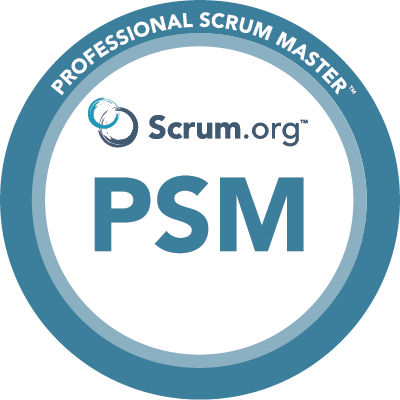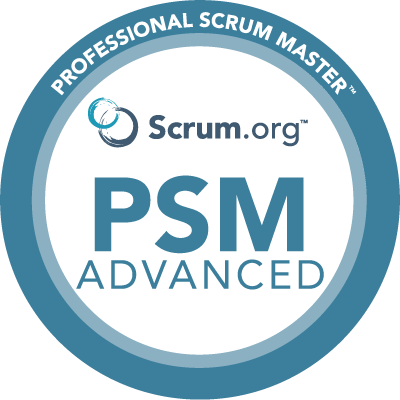
The role of a Scrum Master is pivotal in enabling organizations to embrace agility and deliver value effectively. Acting as a servant leader and a coach, the Scrum Master ensures that Scrum principles are well understood and practiced while fostering a culture of continuous improvement within the team and the organization.
However, for aspiring Scrum Masters, the journey to mastering this role can seem daunting. The need for a structured yet flexible learning approach is essential to meet the unique challenges of various teams and environments. This is where Scrum.org’s development path stands out. Unlike traditional, rigid curriculums, this path emphasizes flexibility, empirical learning, and tailored growth, enabling Scrum Masters to evolve based on their unique needs and experiences.
In this article, we will explore the components of the Scrum Master Development Path and uncover how it equips individuals to grow into effective Scrum Masters while adhering to the principles of agility and continuous learning.
The Three Components of the Scrum Master Development Path
The Scrum Master Development Path from Scrum.org is designed to support individuals in becoming highly effective in their roles by focusing on three interconnected components: self-assessment, training and workshops, and certifications. These components create a comprehensive framework for continuous growth and learning.
Self-Assessment
Self-assessment is the cornerstone of the Scrum Master development journey. It encourages individuals to evaluate their current understanding of Scrum principles and their ability to apply them effectively. By identifying strengths and areas for improvement, aspiring Scrum Masters can tailor their learning journey to address specific gaps. Scrum.org provides various tools and resources, such as open assessments, to help individuals gauge their readiness and measure progress.
Training and Workshops
Structured learning through training and workshops plays a critical role in deepening Scrum Masters’ knowledge and enhancing their skills. Scrum.org offers a range of professional courses designed to cater to different levels of experience and specific challenges. These interactive sessions focus on real-world scenarios, allowing participants to practice applying Scrum principles and techniques in diverse contexts. The flexibility of the curriculum ensures that learners can choose sessions relevant to their immediate needs and career aspirations.
Certifications
Certifications validate a Scrum Master’s competence and are an integral part of the development path. Scrum.org’s certification exams, such as the Professional Scrum Master (PSM) series, are highly respected and demand a deep understanding of Scrum and its application. These certifications are not just a badge of knowledge but a testament to the individual’s ability to lead and support teams effectively within an agile framework.
By combining these three components, Scrum.org ensures that the development path is not a one-size-fits-all solution. Instead, it offers a dynamic and adaptive approach, empowering individuals to grow in their roles based on their unique experiences and challenges.
The Professional Scrum™ Competency Model
At the heart of the Scrum Master Development Path from Scrum.org lies the Professional Scrum™ Competency Model, which serves as a guiding framework for building and enhancing the skills needed to excel as a Scrum Master. This model identifies key competencies that Scrum Masters should develop to effectively support their teams, product development, and the broader organization. These competencies are divided into five primary focus areas:
Understanding and Applying the Scrum Framework
A deep understanding of Scrum’s roles, events, and artifacts is essential for any Scrum Master. This competency ensures that the individual can apply the framework effectively to drive transparency, inspection, and adaptation within the team and across the organization. It also involves fostering a shared understanding of Scrum among all stakeholders.
Developing People and Teams
Scrum Masters must be skilled in supporting individuals and teams to maximize their potential. This includes promoting a culture of collaboration, facilitating effective communication, and empowering teams to take ownership of their work. Strong interpersonal skills and the ability to coach team members are critical for success in this area.
Managing Agile Product Delivery
Scrum Masters play a pivotal role in ensuring that teams deliver valuable products efficiently and consistently. This competency focuses on enabling teams to prioritize work effectively, manage complexity, and maintain alignment with business goals. It also emphasizes the importance of iterative delivery and customer-centric approaches.
Facilitating Professional Product Development
Scrum Masters must be equipped to guide teams in achieving technical excellence and delivering high-quality products. This includes fostering practices such as continuous integration, testing, and deployment, as well as encouraging experimentation and innovation.
Developing Agile Organizations
Beyond the team level, Scrum Masters are agents of change who promote agility across the organization. This competency involves helping organizations embrace a culture of adaptability, continuous improvement, and value-driven decision-making. It also includes influencing leadership and aligning organizational practices with agile principles.
These competencies are interconnected, and mastery of each contributes to the overall effectiveness of the Scrum Master. By focusing on these areas, the Professional Scrum™ Competency Model provides a roadmap for Scrum Masters to evolve into leaders who drive meaningful change and enable organizational agility.
Details of the Scrum Master Training Path
Scrum.org offers a variety of professional training programs to help Scrum Masters develop the skills and knowledge needed to excel in their roles. Each course is designed to address specific aspects of the Scrum Master’s responsibilities, ensuring a tailored and practical learning experience. Here’s an overview of the key training options:
Professional Scrum Master (PSM)
The foundational PSM course provides a comprehensive understanding of the Scrum framework and the role of the Scrum Master. Participants learn how to facilitate collaboration, address challenges, and foster an environment of continuous improvement. The course emphasizes the empirical process of inspection and adaptation, preparing individuals to apply Scrum principles in real-world scenarios.
Professional Scrum Facilitation Skills (PSFS)
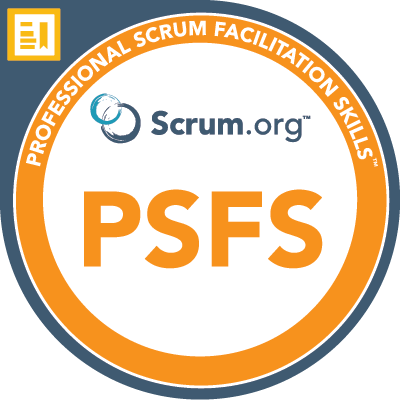
Facilitation is a core skill for Scrum Masters, and the PSFS course focuses on enhancing this ability. Participants explore techniques to guide effective discussions, resolve conflicts, and ensure productive outcomes during Scrum events. The training equips Scrum Masters with tools to foster collaboration and decision-making within diverse teams.
Advanced Professional Scrum Master (A-PSM)
The A-PSM course is designed for experienced Scrum Masters seeking to deepen their expertise. It delves into advanced topics such as scaling Scrum, dealing with team dysfunctions, and coaching teams toward self-management. This training emphasizes the strategic aspects of the Scrum Master’s role, enabling participants to become leaders who drive organizational change.
Professional Agile Leadership – Evidence-Based Management (PAL-EBM)
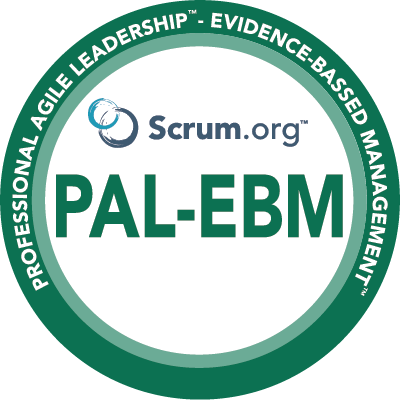
This course focuses on helping Scrum Masters guide organizations toward value-driven decision-making using the Evidence-Based Management (EBM) framework. Participants learn to set measurable goals, prioritize outcomes, and create transparency to foster alignment between business objectives and agile practices.
Scaled Professional Scrum (SPS)
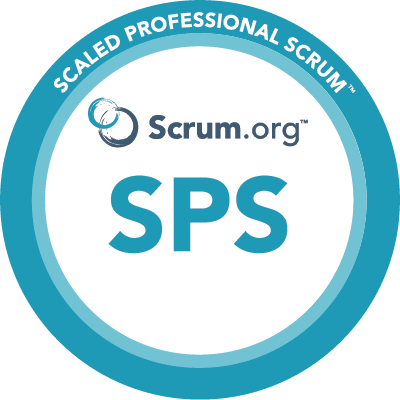
For Scrum Masters working with multiple teams, the SPS course introduces the Nexus framework for scaling Scrum. It addresses challenges related to team coordination, dependency management, and integration in complex environments. The training prepares Scrum Masters to facilitate collaboration across large-scale initiatives.
Each course is rooted in practical, hands-on learning, allowing participants to apply concepts in simulated scenarios. This ensures that Scrum Masters not only understand the theory behind their role but also gain the skills needed to handle the challenges of dynamic, real-world environments.
By providing these targeted training options, Scrum.org empowers individuals to customize their learning journey and focus on the areas most relevant to their professional goals and organizational needs.
Problem-Oriented Learning: A Just-in-Time Approach
One of the standout aspects of the Scrum.org development path is its emphasis on problem-oriented learning. This approach aligns closely with the agile principle of addressing challenges as they arise, ensuring that learning is relevant, timely, and impactful. Rather than adhering to a fixed curriculum, Scrum.org encourages Scrum Masters to adopt a “just-in-time” mindset for their professional development.
Learning What’s Needed, When It’s Needed
Traditional learning approaches often involve acquiring knowledge “just in case” it may be useful in the future. While this method provides a broad foundation, it can lead to inefficiencies, as learners may spend time on topics that don’t immediately apply to their current challenges. Scrum.org’s problem-oriented learning flips this paradigm by focusing on skills and knowledge that address real-world issues faced by Scrum Masters in their roles.
For example, a Scrum Master encountering difficulties with team facilitation can prioritize the Professional Scrum Facilitation Skills (PSFS) course to improve their capabilities in guiding effective discussions. Similarly, those supporting large-scale agile initiatives can take the Scaled Professional Scrum (SPS) training to manage complexities specific to scaling Scrum.
Empirical Learning in Action
This approach embodies the empirical process that underpins Scrum itself: transparency, inspection, and adaptation. Scrum Masters are encouraged to continuously evaluate their knowledge and performance, identify gaps, and pursue learning opportunities that address these areas. By doing so, they adapt their growth trajectory to align with the demands of their teams and organizations.
The Role of Self-Reflection
Self-reflection plays a vital role in problem-oriented learning. Scrum Masters are urged to regularly assess their strengths, weaknesses, and the evolving needs of their teams. Tools like Scrum.org’s open assessments and the Professional Scrum™ Competency Model serve as valuable resources for identifying areas of improvement. This reflective practice ensures that learning remains dynamic and context-driven.
Flexibility Without Compromise
While the Scrum.org development path promotes flexibility, it maintains a high standard of rigor and quality. Each training and certification program is designed to address specific competencies comprehensively, ensuring that learners gain practical, actionable insights that they can immediately apply in their roles.
This just-in-time, problem-oriented approach empowers Scrum Masters to navigate the complexities of their roles with confidence, agility, and precision. It also reinforces the mindset of continuous improvement, making it an essential element of the Scrum.org development path. By learning what’s needed, when it’s needed, Scrum Masters become better equipped to address challenges and drive success for their teams and organizations.
Conclusion
The Scrum Master Development Path from Scrum.org offers a dynamic, flexible, and practical approach to mastering the complexities of the role. Unlike traditional, rigid learning programs, this path is designed to empower individuals to grow based on their unique needs, challenges, and aspirations. By integrating self-assessment, targeted training, and rigorous certifications, Scrum.org provides a comprehensive framework for professional development.
Through the Professional Scrum™ Competency Model, aspiring and experienced Scrum Masters gain clarity on the key skills and knowledge areas needed to excel. The diverse range of courses offered ensures that learners can tailor their growth journey, whether they are building foundational knowledge, enhancing facilitation skills, or scaling Scrum across complex environments. This flexibility enables Scrum Masters to address immediate challenges while continuously preparing for future opportunities.
The emphasis on problem-oriented, just-in-time learning further aligns the development path with the core principles of Scrum: transparency, inspection, and adaptation. This approach not only equips Scrum Masters to tackle real-world problems effectively but also fosters a mindset of continuous improvement—both for themselves and the teams they serve.
Ultimately, becoming an effective Scrum Master is not about following a one-size-fits-all curriculum. It’s about embracing empiricism, cultivating a growth mindset, and continually evolving to meet the ever-changing demands of the agile world. The Scrum.org development path embodies these values, providing a clear yet flexible roadmap for Scrum Masters to achieve success and drive meaningful change within their organizations.
